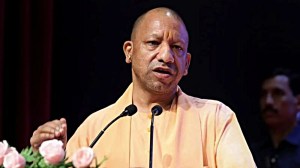Executive solved Jharkhand, not SC: Speaker
Lok Sabha Speaker Somnath Chatterjee, who today chaired a meeting of state presiding officers to discuss the fallout of the Supreme Court...

Lok Sabha Speaker Somnath Chatterjee, who today chaired a meeting of state presiding officers to discuss the fallout of the Supreme Court’s directions to the Jharkhand House, said the court’s interim ‘‘order could not find a solution’’ to the Jharkhand crisis and it was ultimately resolved through ‘‘executive interference’’.
The Speaker’s much-hyped meeting saw as many as 11 speakers, six of NDA-ruled states, give it a miss while the 18 present expressed ‘‘grave concern’’ over court orders that tend to disturb the delicate balance of power between the judiciary and legislature.
Asking courts not to transgress into areas assigned to the legislature by the Constitution, the conference ultimately adopted a resolution emphasising ‘‘mutual trust and respect’’ and a ‘‘harmonious relationship’’ between the legislature and judiciary.
Presiding officers of NDA-ruled Chhattisgarh, Gujarat, Jharkhand, Madhya Pradesh, Orissa and Rajasthan were not present. Also not present were the speakers of Tamil Nadu, Uttaranchal, Mizoram, Nagaland and Himachal Pradesh. Chatterjee downplayed the boycott by NDA states, saying he had full confidence in all presiding officers.
Maintaining that the conference was not called for creating a ‘‘confrontation’’ between the legislature and judiciary, Chatterjee, while responding to a query later on Jharkhand, said: ‘‘In a sense, an unimplementable order was made. With all respect to the Supreme Court, the crisis in Jharkhand was resolved through executive interference and not by judicial order. The March 9 interim order (of the SC) could not find a solution.’’
Raising procedural issues stemming from the court order, he said: ‘‘If the court considered that there was violation of the order, would the speaker— pro tem—or members of the legislature be held guilty of contempt of Supreme Court? Would the speaker be liable to submit to the jurisdiction of the Supreme Court? How would members of the legislature be treated for alleged contempt of court? Would the Supreme Court have directed the arrest and detention of the speaker and members of the Jharkhand legislature?’’
He took the view that the Jharkhand order cannot become a precedent as ‘‘it is not a law declared by the Honourable Supreme Court, but an interim order.’’
‘‘I can’t expect the Supreme Court to pass an unreasoned judgement. I am sure it will not be treated as the law of the land. It is not a law declared by the Supreme Court as law of the land. It is just an interim order,’’ he added.
Taking note of a number of court orders, including the March 9 interim order of the SC, the February 24, 1998 order of the SC in the wake of political developments in Uttar Pradesh and orders of the High Courts of Allahabad (Keshav Singh’s case), Kerala (R Sudarshan Babu case), Andhra Pradesh (Eenadu case), the meeting’s five-point resolution stated:
• That there must exist mutual trust and respect between the legislature and the judiciary and also an understanding that they are not acting at cross purposes but striving together to achieve the same goal that is to serve the common man of the country to make this country strong
• That the judiciary commands and justly deserves all the respect and dignity it enjoys
• That the legislatures also, as the supreme legislative and representative bodies which give voice to the hopes and aspirations of the teeming millions of this country, deserve the same degree of respect and dignity
• That the success of democratic governance would be greatly facilitated if these two important institutions respect each other’s role in the national endeavour and do not transgress into areas assigned to them by the Constitution
• That it is imperative to maintain harmonious relations between the legislature and the judiciary.
Photos


- 01
- 02
- 03
- 04
- 05





























